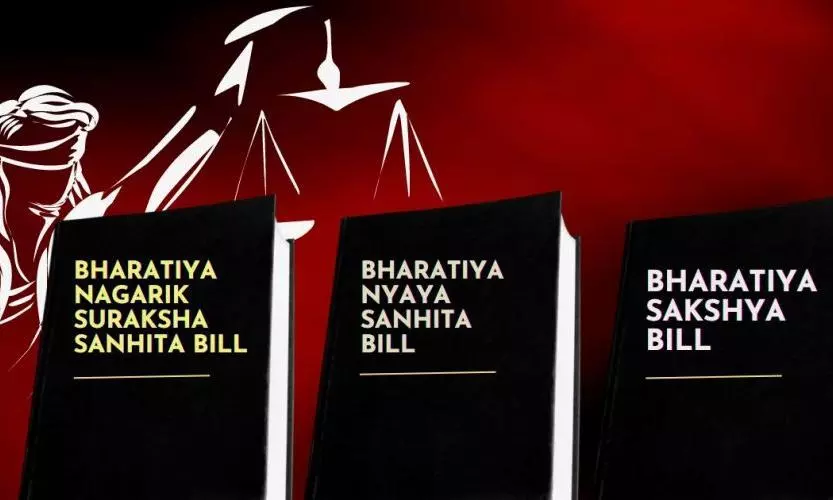
PIL calls use of Hindi, Sanskrit in new Laws ‘linguistic imperialism’ in Kerala HC
text_fieldsA public interest litigation (PIL) has been filed in the Kerala High Court challenging the use of Hindi and Sanskrit titles for recently enacted laws, arguing that Parliament should use only English for naming legislation.
The petitioner, lawyer P.V. Jeevesh, seeks directions from the court to the Union government to rename the Bharatiya Nagarik Suraksha Sanhita 2023, Bharatiya Nyaya Sanhita 2023, and Bharatiya Sakshya Adhiniyam 2023 in English. These laws have replaced the Code of Criminal Procedure, the Indian Penal Code, and the Indian Evidence Act, respectively.
Jeevesh contends that using Hindi and Sanskrit for the titles of these significant laws contravenes the constitutional framework, especially for the legal community in South India, where proficiency in these languages is not widespread.
He argues that the current nomenclature causes confusion and difficulty among non-Hindi and non-Sanskrit speakers, particularly affecting legal practitioners and the general populace in the southern regions of India. He asserts that this practice violates the fundamental rights under Article 19 of the Constitution, which guarantees freedom of speech and expression.
Furthermore, the petitioner points out that such naming conventions conflict with Article 348 of the Constitution, which stipulates the use of English in the Supreme Court, High Courts, and for official legislative documents. Article 348(1)(b) specifically mandates that all Bills and Acts introduced in the legislative bodies be in English.
Jeevesh claims that the current approach exemplifies linguistic imperialism and undermines democratic values and federal principles by imposing Hindi and Sanskrit, which are not widely understood across all regions of India.























